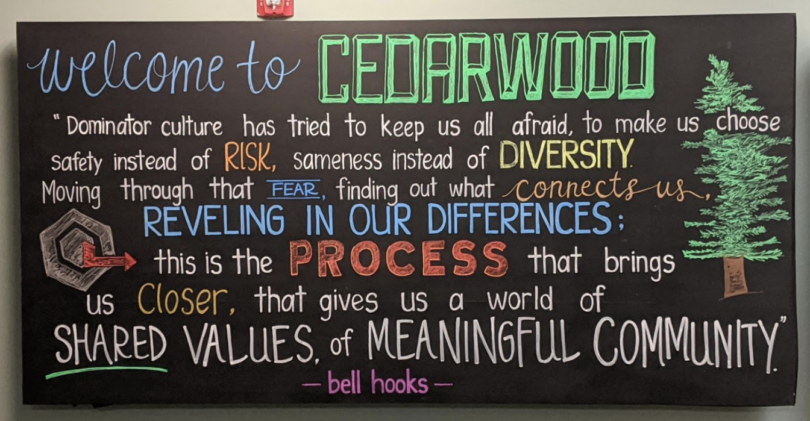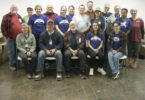The Intercollegiate Peace Fellowship is a student-led conference in which Mennonite colleges and universities come together to discuss social justice-related issues. This year Eastern Mennonite University hosted the conference Feb. 7 to 9 in Harrisonburg, Va. This year’s theme was: “Nothing About Us Without Us.”
The speaker, Erica Littlewolf, is from a Northern Cheyenne tribe in Montana, and currently works with Mennonite Central Committee. Students attended panels and workshops where they learned to define peacebuilding and how it relates to issues of justice.
Everyone does peacebuilding, and peacebuilding affects everyone. We all participate in peacebuilding in our communities through individual and group efforts, whether we realize it or not. We should all be affected by these efforts as well, whether directly or indirectly.
Peacebuilding can range from getting to know your neighbor or someone new, to advocating for the rights of a certain group in your community. It is all about connection and relationships. When there is trouble or conflict, we need to face it head-on, together. It doesn’t have to happen just during times of war, or right after them.
There are hurts and traumas that people go through every day, challenges they face that they cannot overcome alone, and peacebuilding is a part of healing those things. If you go looking you will find a need. Peacebuilding happens all over, wherever you and others are living and working.
It is not confined to a building, a country, a region or a school. It is needed everywhere. We need it in order to create a better world, help those around us and help ourselves. The more we open ourselves to the world and get involved the better the world becomes.
Building peace requires a conscious effort. You first need to increase your awareness, who are the people around you and what are their needs? It can also be about self-discovery and vulnerability, who am I and what are my needs today? Allowing a safe space for yourself and others to be authentic is a major step in the direction of peacebuilding.
Bluffton has the saying, “It’s all about relationships,” and it really is. Peacebuilding always involves a community, the betterment of that community and working with others and for others requires relationship building. We cannot cause greater change without support, and sometimes we cannot know what change is needed until someone else points it out to us.
Someone at the conference said something unforgettable, “People are not perfect enemies.”
We are not made in a way that allows us to hate each other completely. Although there are misunderstandings, differences and bad first impressions, there is something that can connect us all to each other simply because we are human.
Another person at the conference said this, “We’re related to all our enemies,” we are all human.
Differences can be respected, rather than erased. People need to learn how to be human with each other. You may not see results quickly or directly, but know that you have planted seeds. You can plant a seed by sharing your story.
At the conference, the importance of storytelling was emphasized. The speaker shared plenty of stories, we heard stories from activists and we watched the story of native children being taken from their homes in the documentary “Dawnland.”
Stories are powerful snapshots of pain, joy, grief and discovery that elicit empathy and acknowledgment. Stories allow a space for dialogue: “I feel your pain, I see what you have been through, I acknowledge and validate your experience, and I am here for you.”
Peacebuilding is sharing stories, repairing relationships, forging connections and eliciting love. Stories break stereotypes and create that space of authenticity and understanding.
In fear and comfortability, people choose the easy route. They opt-out of sharing stories, bite their tongue in the face of injustice and miss opportunities for change.
Choose your own path. Speak up and stay loud. Learn what connects you and someone different than you. Do not be afraid to share your story. Engage in cultures and religions unlike your own. Love yourself and love your enemies. There is radical transformation and healing that takes place when acknowledgment and connectedness happen among humans. Go in peace.
— Alexis Cash and Deborah Yoder
Editor’s note: The photo at the top of this post was taken by Alexis Cash at the Intercollegiate Peace Fellowship at Eastern Mennonite University in Harrisonburg, Virginia.







